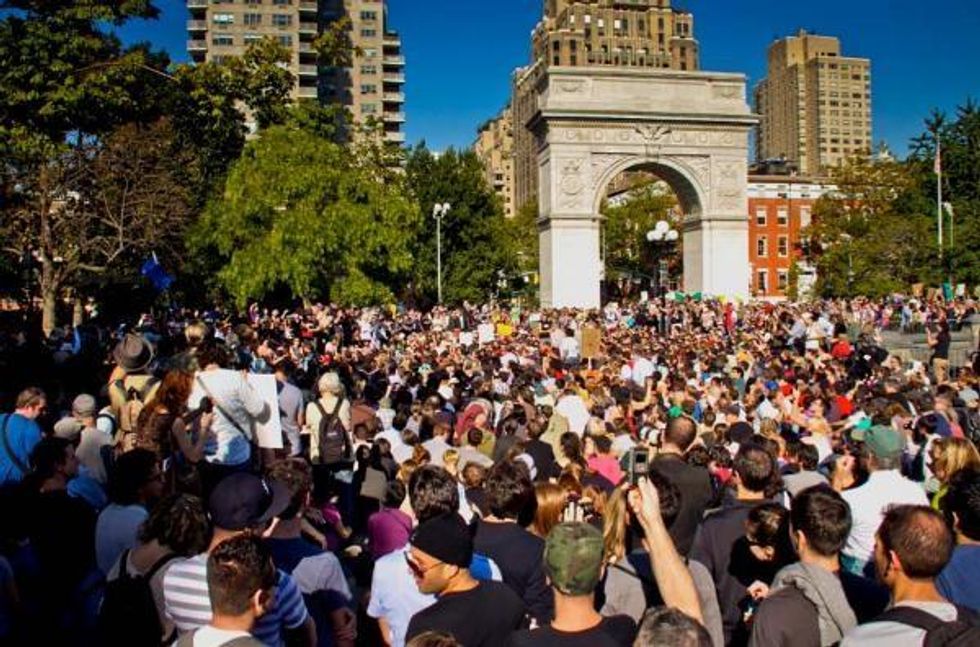On August 2, 2011 at the very first meeting of what was to become Occupy Wall Street, about a dozen people sat in a circle in Bowling Green. The self-appointed "process committee" for a social movement we merely hoped would someday exist, contemplated a momentous decision. Our dream was to create a New York General Assembly: the model for democratic assemblies we hoped to see spring up across America. But how would those assemblies actually operate?
The anarchists in the circle made what seemed, at the time, an insanely ambitious proposal. Why not let them operate exactly like this committee: by consensus.
It was, in the least, a wild gamble, because as far as any of us knew, no one had ever managed to pull off something like this before. Consensus process had been successfully used in spokes-councils -- groups of activists organized into separate affinity groups, each represented by a single "spoke" -- but never in mass assemblies like the one anticipated in New York City. Even the General Assemblies in Greece and Spain had not attempted it. But consensus was the approach that most accorded with our principles. So we took the leap.
Three months later, hundreds of assemblies, big and small, now operate by consensus across America. Decisions are made democratically, without voting, by general assent. According to conventional wisdom this shouldn't be possible, but it is happening -- in much the same way that other inexplicable phenomena like love, revolution, or life itself (from the perspective of, say, particle physics) happen.
The direct democratic process adopted by Occupy Wall Street has deep roots in American radical history. It was widely employed in the civil rights movement and by the Students for a Democratic Society. But its current form has developed from within movements like feminism and even spiritual traditions (both Quaker and Native American) as much as from within anarchism itself. The reason direct, consensus-based democracy has been so firmly embraced by and identified with anarchism is because it embodies what is perhaps anarchism's most fundamental principle: that in the same way human beings treated like children will tend to act like children, the way to encourage human beings to act like mature and responsible adults is to treat them as if they already are.
Consensus is not a unanimous voting system; a "block" is not a No vote, but a veto. Think of it as the intervention of a High Court that declares a proposal to be in violation of fundamental ethical principles -- except in this case the judge's robes belong to anyone with the courage to throw them on. That participants know they can instantly stop a deliberation dead in its tracks if they feel it a matter of principle, not only means they rarely do it. It also means that a compromise on minor points becomes easier; the process toward creative synthesis is really the essence of the thing. In the end, it matters less how a final decision is reached--by a call for blocks or a majority show hands--provided everyone was able to play a part in helping to shape and reshape it.
We may never be able to prove, through logic, that direct democracy, freedom and a society based on principles of human solidarity are possible. We can only demonstrate it through action. In parks and squares across America, people have begun to witness it as they have started to participate. Americans grow up being taught that freedom and democracy are our ultimate values, and that our love of freedom and democracy is what defines us as a people--even as, in subtle but constant ways, we're taught that genuine freedom and democracy can never truly exist.
The moment we realize the fallacy of this teaching, we begin to ask: how many other "impossible" things might we pull off? And it is there, it is here, that we begin enacting the impossible.
